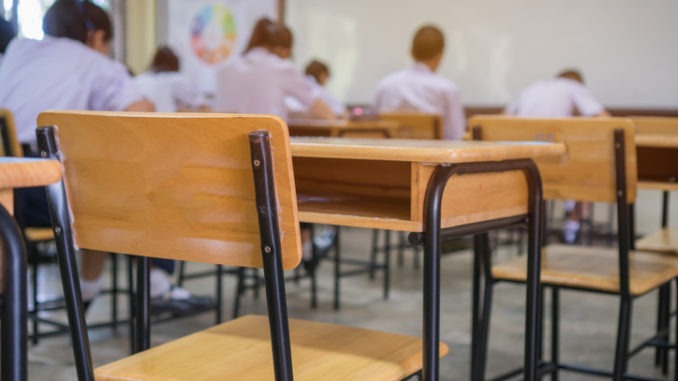
As reported by BBC news, fears of families having to self-isolate over Christmas has prompted some parents to pull their children out of school before the end of term
Most Welsh local authorities have said schools should remain open until 18 December, despite calls from some unions to end lessons early. Pupils in Blaenau Gwent will have their last day in school on Wednesday before moving online until the 18 December. The area recorded the highest COVID-19 infection rates in Wales last week.
Families with children have been told they should consider ‘pre-isolating’ at home for 10 days before Christmas if they are planning to see elderly relatives, in a report by the Welsh Government’s Technical Advisory Group (TAG) on Tuesday. But health minister Vaughan Gething said harm had been done to children when schools were closed, particularly vulnerable children, highlighting the mental health impact particularly among secondary school age children.
Former primary school teacher Victoria Rosser, 34, from Cwmbran, is taking her children, aged five and eight, out of school a week early.
“There is a lot of pressure on parents. I feel the pressure immensely,” she said.
“The children would be devastated if they came into contact with another child next week who was positive. It would mean isolating throughout the Christmas period.
“It would mean they couldn’t see their grandparents over Christmas. I’m also worried they could pass it on to their grandparents.”
The mother-of-four said she was also worried about her own auto-immune condition and her newborn daughter’s health. She said she informed her children’s school she would not be sending them in next week, despite schools in Torfaen remaining open until 18 December.
“It’s enough time to make sure they don’t come into contact with any positive cases over the next two weeks and make sure they’re nice and safe on Christmas Day to see family,” she added.
“I’ve heard of a lot of families doing this. At the moment I think lots of parents would like to take their children out for the final week.”
Nic Cooke, 35, also from Cwmbran, has made the same decision for her seven and 11-year-old.
“We’ve had a lot of things spoiled for us and have had adapt to new ways of life this year due to COVID I’m not letting them spoil Christmas,” she said.
“If I sent my children in the last week of term and they needed to isolate then Christmas wouldn’t be the same as we couldn’t spend it with our family.”
First minister Mark Drakeford has said schools were among the safest places for children to be during the pandemic. Caerphilly and Rhondda Cynon Taf councils are planning to close schools a few days before the end of term. Schools in Blaenau Gwent will be the earliest in Wales to stop physical teaching, nine days before the end of term.
Kimberley Lloyd is an NHS worker and mother-of-three from Swffrydd in Blaenau Gwent. She said her children’s school was not providing a hub for keyworker’s children which had created a childcare problem.
“It’s left us in a really difficult situation,” she told BBC Radio Wales.
“I do understand the teachers’ welfare and welfare of students – nobody wants to self-isolate over Christmas but my job doesn’t stop tomorrow, my husband’s job doesn’t stop tomorrow…
“I really don’t understand where the decision has come from and why it’s been made.”
Daniel and Samantha Pearce said the news their daughter Hazel, 10, would be at home after Wednesday came “totally out of the blue”.
Mrs Pearce, 34, who is a self-employed cleaner, said: “There’ll be parents that either can’t or won’t ask for their family’s help to look after the children because they are frightened they could be giving them COVID just before Christmas.”
Health minister Vaughan Gething told BBC Radio Wales Breakfast: “We are having conversations all the time with local authorities and we’ve agreed that face-to-face teaching can continue until the end of next week.
“If this local public health situation is so significant that schools can’t operate because they’ve got staff who aren’t there, they may need to make different choices. There isn’t a significant public health case that suggests that we need to close our primary schools.”
He said school closures would have a “direct impact” on front-line services, adding: “These are really difficult choices. These are presented as a simple and obvious choice – ‘close schools and all will be well’ – but it isn’t that simple at all.”
Gething added: “We review the evidence that comes to us pretty much each and every day. There’s nothing simple and there’s certainly nothing glib in the way that we make our choices.”



Be the first to comment